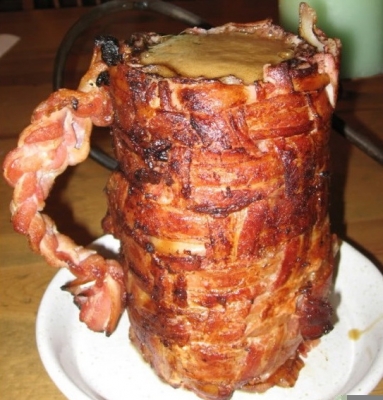Looks like this isn't over, importing pigs is banned here in the state now
An Indiana farm has become the first to confirm publicly it suffered a second outbreak of a deadly pig virus, fueling concerns that a disease that has wiped out 10 percent of the U.S. hog population will be harder to contain than producers and veterinarians expected.
The farm, through its veterinarian, publicly acknowledged on Tuesday a repeat incident of Porcine Epidemic Diarrhea virus (PEDv), which has killed up to 7 million pigs and pushed pork prices to record highs since it was first identified in the United States a year ago.
Matt Ackerman, whose veterinary practice is in southeastern Indiana, told Reuters the farm's operators did not want to be identified but authorized him to speak on their behalf.
The state and federal effort to stamp out PEDv has operated on an assumption that a pig, once infected, develops immunity and will not be afflicted by the disease again for at least several years. Likewise, farms that had endured the disease were not known to suffer secondary outbreaks.
But a year after the virus was identified, repeat outbreaks have occurred at farms but not been publicly confirmed before now. These so-called secondary outbreaks are a challenge to efforts to stem the disease, which is almost always fatal to baby piglets.
Nationwide, PEDv outbreaks seem to recur in about 30 percent of infected farms, the American Association of Swine Veterinarians told Reuters, confirming for the first time the likelihood of repeated outbreaks.
Hog futures reached a record high last month and are up more than 26 percent at $115 per hundredweight since the first U.S. outbreak was confirmed last summer. Retail pork prices also have set new records, and a wave of re-infection could cause even more losses to the nation's hog herd.
In the Indiana case, genetic sequencing showed the "exact same strain" of PEDv hit pigs at the Indiana farm in May 2013 and again in March 2014, said Ackerman, who collected samples from the farm.
Piglets born to sows that were infected for a second time have a death rate of about 30 percent, compared to near-total death loss among newborn piglets during the first outbreak, he said.
The incidence of the disease "re-breaking" on farms after it appeared to have been wiped out, indicates that the risk for ongoing severe losses from the virus is bigger than previously expected. The lack of long-term immunity also means hog producers must keep up strict bio-security measures to fight the disease, which has already spread to 30 states.
Most Users Ever Online: 698
Currently Online:
59 Guest(s)
Currently Browsing this Page:
1 Guest(s)
Top Posters:
easytapper: 2149
DangerDuke: 2030
groinkick: 1667
PorkChopsMmm: 1515
Gravel Road: 1455
Newest Members:
Forum Stats:
Groups: 1
Forums: 12
Topics: 11482
Posts: 58640
Member Stats:
Guest Posters: 2
Members: 19842
Moderators: 0
Admins: 1
Administrators: K

 Log In
Log In Home
Home
 Offline
Offline









